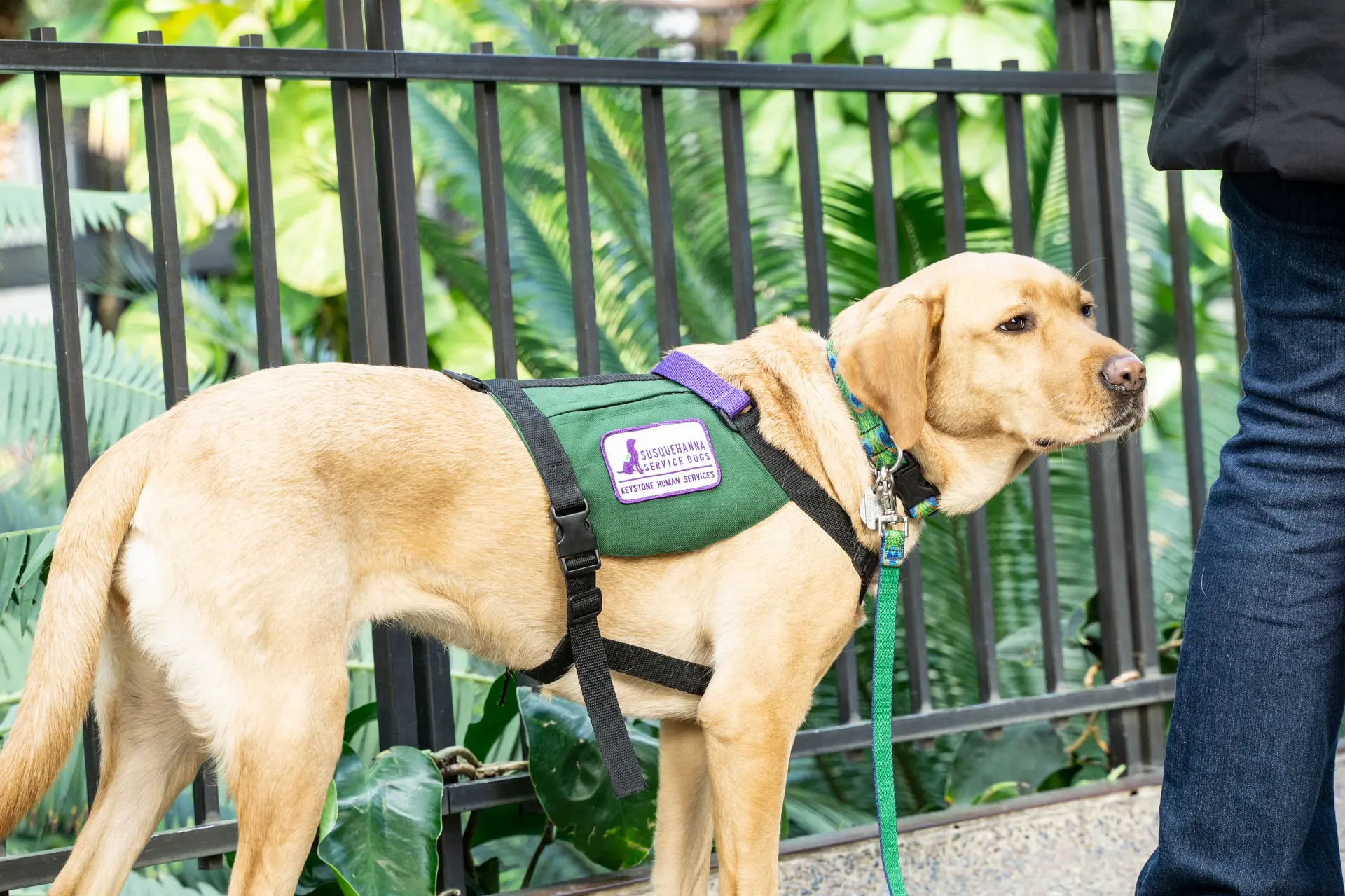Written by Barb Andrews, Law Clerk
Dog as “man’s best friend” is an understatement for the over 250,000 Ontarians who rely on the assistance provided by their service dogs on a daily basis.
The first thought that comes to mind of a service dog is often a guide dog for the blind; however, service dogs are utilized by people with epilepsy, post-traumatic stress disorder, mental health challenges and physical disabilities, as well as by others.
To register a service dog, the dog must be readily identifiable as a service animal for reasons related to the handler’s physical or psychological issues. The handler must provide documentation from any one of several regulated health professionals confirming the need for the service dog as a result of a disability. These regulated health professionals include an audiologist, speech-language pathologist, chiropractor, nurse, occupational therapist, optometrist, physician, physiotherapist, psychologist, psychotherapist or mental health therapist.
As the service dog is not a pet but rather, a working animal providing a specific service to his/her handler, there should not be any further fees or requirements that may apply to pets.
A service dog may accompany its owner/handler to any publicly-accessible space, including restaurants, museums, airports, theaters, stores, taxis and parks. The dog must be trained to meet the specific needs of your disability. Service Dogs Canada recognizes that you may train your own dog, and supplies you with the appropriate identification to allow your dog to accompany you in public. The service dog package which may be purchased at a cost of $250.00 includes:
- vest embroidered with a Service Dog Patch
- plastic wallet card
- customized metal collar Tag
- Service Dog Certificate
- Heel – your dog must stay in a heel position when walking and show a relaxed attitude with no fear of cars or traffic noise. Smaller dogs may be carried;
- Sit on command – your dog must be trained to sit on command and be trained not to break the sit command if food is dropped from a table in a restaurant. Also, your dog must obey the sit command even if approached by children or strangers;
- Aggression – your dog may acknowledge noise but not react with or show any form of aggression;
- Under table command – your dog must be trained to sit under a table within a restaurant or, if on public transit between your legs or at your side. Your dog needs to continue to sit or lie down and should not jump up and down frequently.
Expertise.
Share
Subscribe to our Newsletter

